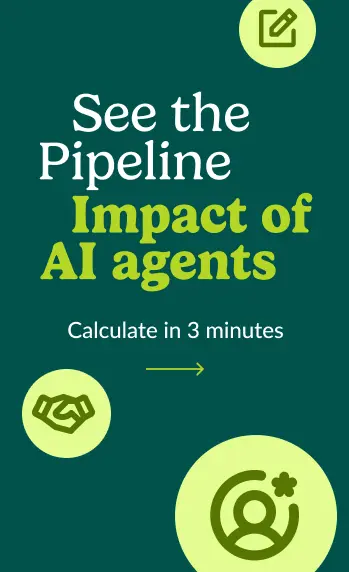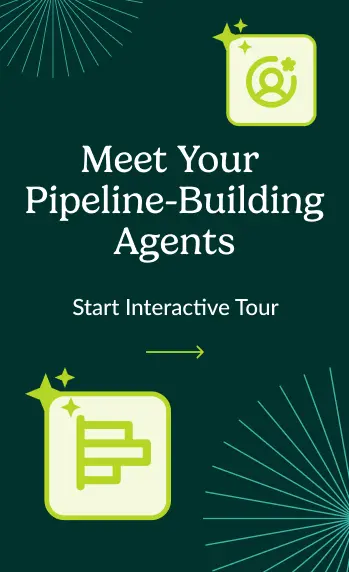Win rates can jump 14% when timing is discussed early
Published:

Salesloft’s data science team recently gathered insights from over 2,000 meeting recordings and transcripts associated with more than 1,200 deals.
We found that when sales reps and buyers discuss timing and objections early on in a deal cycle, those deals tend to accelerate to the next stage faster and are more likely to move to closed won.
Here we’ll take a deeper look at two trends we found.
Trend 1: Discussing timing is critical in early conversations
When there are timelines or time-window mentions as part of an early stage discovery meeting, win rates trend upwards by as much as 14%.
Examples of timing-related questions and statements might include:
- What’s your timeline for implementation?
- When is your current contract up?
- When this process works well, what does the time frame typically look like?
- We’ll present the proposal to leadership next week
- I think anytime between the 20th and 22nd works pretty well
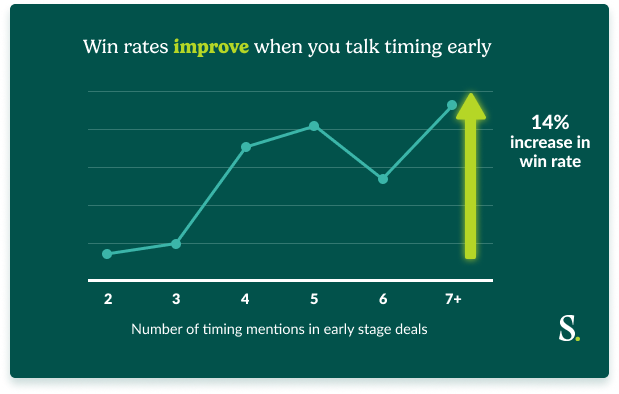
Early mentions of timeline in your deal cycle also reduce time in stage, potentially speeding up the overall cycle.
If teams didn’t mention timing at all, they averaged roughly 40 days to get to the next stage. If they did talk about timelines, they only spent about 20 days in each stage of the cycle across all deals, won or lost.
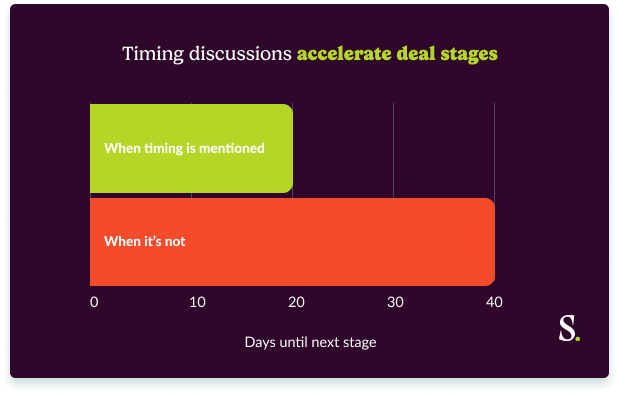
Why is this? Timing references are indicative of buyers who are more likely to make a purchase decision. Encourage your reps to ask more discovery questions around timing, milestones, and plans, which will help qualify deals – in or out – earlier in the process.
Trend 2: Early objections improve deal velocity
Salesloft data also showed that deals move to the next stage faster when there are more objections raised in meetings.
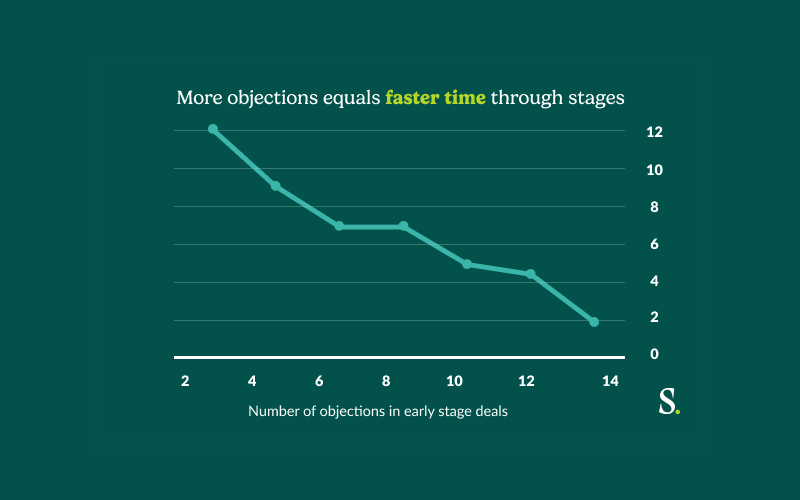
Our research team looked at the average days until the next stage and discovered that the more objections there were, the faster a deal left its current stage — either by disqualification or progressing through the cycle.
Why is this? Objections in early stage deals lead to faster disqualification. Objections in later stage deals have a higher motivation to resolve. Alternatively, the number of objections could indicate how well a seller is able to find key information for the customer and uncover opportunities to solve their problems. The more effective a rep works to uncover these objections, the faster a deal can move to either closed won or lost.
Follow us on LinkedIn to see more research like this, as well as exciting new features as we release them throughout the year.
Quick tips to activate your sellers
During your 1:1s, guide your reps on how to integrate discussions about timelines and objections into their initial meetings with buyers and customers.
Additionally, in team training sessions, lead discussions and role-playing exercises focused on identifying and addressing timing and objections effectively.
Upskill your reps with our essential resources:
